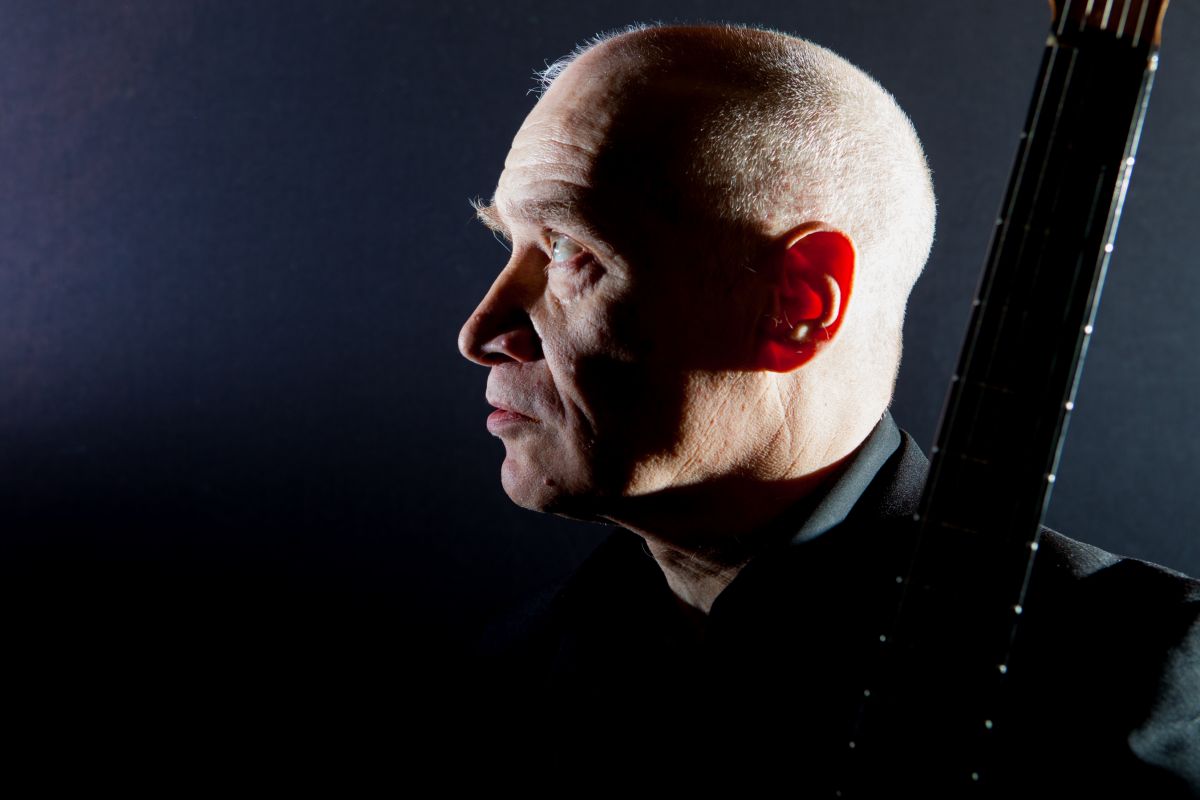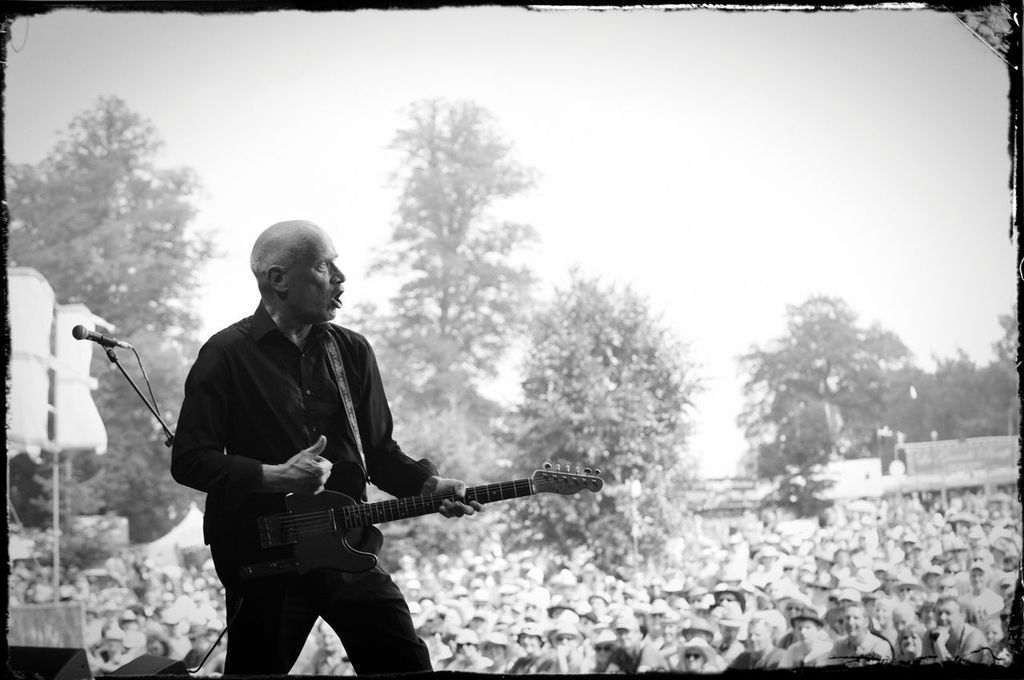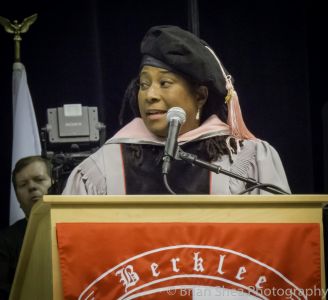(Photo by Leif Laaksonen)
It's rather difficult to find the right way to describe in one word the artistry of somebody like the 70 years-old rock pioneer Wilko Johnson, whose personal life and music career are of such stature that even the expressions "legendary" or "miraculous" struggle to express in its entirety.
Every respectable music fan knows of Johnson as being the former member, with Lee Brilleaux, of the mid-70's seminal rock band Dr. Feelgood or about the artist from Canvey Island joining Ian Dury's band, The Blockheads, later in 1980. In a career-span of almost 50 years made of many highs and very rare lows, Johnson has then reached in 2014 the top spot of the worldwide charts with the album Going Back Home, a record he made together with The Who's front-man Roger Daltrey, in a time of his life when Johnson, diagnosed with a terminal cancer, was mentally prepared to the idea of dying.
Johnson though, being a fighter all his life, decided to undergo an operation that would try and remove every single part of the cancer, an operation that proved to be fortunately successful. What was intended to be the last year of the artist's life and his legacy to music was documented in a truly wonderful and touching music documentary called The Ecstasy Of Wilko Johnson, directed by one of the most respected filmmaker worldwide, Julian Temple, who had worked previously with Johnson in the 2009's award-winning Oil City Confidential.
Between his commitment as being an actor in one of the most famous TV series, Game Of Thrones and being a musician with the Wilko Johnson Band, the guitarist found also the time to release his second memoir, Don't Leave Me Here, a truly moving and inspiring book about his rollercoaster-type life and career.
2017 is certainly a special year for Wilko Johnson. The artist, in occasion of his 70th birthday and the 30th anniversary of his career with the Wilko Johnson Band, will play a very special concert at a true music temple of the United Kingdom, the Royal Albert Hall on 26th September.
Bluebird Reviews has just managed to catch up with Wilko Johnson few days before the concert and talk about his glorious career as an artist at 360 degrees.
(Photo by Scarlet Page)
BBR - Wilko, thank you so much for talking to us at Bluebird Reviews. 2017 marks another important landmark in your life and career, between your 70th birthday and the 30th anniversary of the Wilko Johnson Band. Have you ever imagined, back when you were a teenager, that the boy from Canvey Island that used to save every penny to buy a Telecaster would have become, in a career-span of five decades, one of the most influential guitarists in music history, an actor and a writer?
WJ - Well, truth to be told, I feel more like a very normal guitar player. I do what I can and you know, it's not for me to say what you said about me because I don't see it like that. I just try to do my best every time and I am very happy if people like it and appreciate it. When I was a teenager, I would have never thought that one day I would have become a musician. It was never an ambition of mine to become a musician and playing guitar was just something I started doing just for fun. When I realized that I was starting to become successful as a musician, I just thought that perhaps, making music was something I would have done for the rest of my life. It's all an accident, really (laughs).
BBR - When you started to listen and appreciate music at a young age, people like Mick Green, The Stones and most of the artists coming from the Chess label made a big impact on your musical formation as a guitarist. In the last half a century of music history, how many artists have, in your opinion, revolutionized the blues and the rock genres besides the ones we mentioned above?
WJ - I don't know, to be honest who may be those that might have been revolutionized those genres. All that I can tell you is that I just get inspired by things that I like but I wouldn't know anything about jazz for sure! I feel that the kind of music I play with my guitar is just very basic rock and roll and certainly, artists that I used to listen to, like Chuck Berry, might have been, unconsciously, of some influence to me. Historically, I know of musicians that took rock and roll to great distances, somebody like Jimi Hendrix, for example. I love Jimi Hendrix but I would never attempt to play the stuff that he did. My guitar playing style is something that I developed rather accidentally. Of course, Mick Green, that you just mentioned, was someone that might have influenced my style greatly because, back in those days, I was listening to a lot of his stuff. The first time I heard him playing, I suddenly thought: "Oh, Man, I want to learn to play like that!". I spent my time listening over and over again to his records and try to emulate Green's style. All that I wanted, really, is to be as good as him. Of course, I knew I couldn't do that and, somehow, by attempting to copy his style, I might have come out with a style of my own, if you like.
BBR - The Dr. Feelgood years, despite the controversial way in which you exited the band, looked to me like a happy period of your life. How long before being part of Dr. Feelgood did you and Lee Brilleaux meet?
WJ - I knew him since the time he moved to Canvey Island. He was a young teenager when I first met him, I think he was 13, I believe 4 years younger than me. We then accidentally encountered each other periods later and decided to form Dr. Feelgood. We never had any ambitions or idea of having success, we just wanted to play that kind of music, when we started, purely because we loved it and we knew that our music style wasn't exactly very fashionable at that time. But we did it and when I think about that band, there is always a special feeling about it, I don't know why. Lee was a very intense guy and when he was on stage, he was always irradiating this incredible nervous energy, an energy that he was sort of transmitting to me as well. I don't think you can never make a band like that. We were just good friends, playing spontaneously the music we loved, reversing our energy in what we were playing. I guess that, something we knew early on for sure, was that the people, when we were playing at different venues, was responding really well to our live performances, you know, with our nervous energy, "firing" our "Machine Gun" and all that.
BBR - Music has been and still is a constant and important element in your life, Wilko. How much has your relation with music changed or simply developed, during these last 5 decades?
WJ - Good question. I think that, when I was in Dr. Feelgood, my approach to music was still fairly amateurish as a guitarist, you know, I wasn't hugely good at that. Then, during the years, playing on stage has been a good learning ground for me and my technique, as a guitarist, certainly improved. I can tell you for sure that I feel like I am a much better guitarist now than when I started playing in Dr. Feelgood. I guess that, with experience, one learns to relax a little bit too but the way I play my music or approach it, I don't think it has fundamentally changed. I am the same guy playing the same kind of music I have always played. I don't do any practice, I just do what I think I am good at, with my guitar. In terms of developing my approach to music, I feel that any development has been purely unconscious and always very natural, like, if you do the same thing thousand times, certainly it will come a moment in which you will be able to do that very same thing better, which I think is what it might have happened to me.
BBR - Your 2016 book Don't You Leave Me Here was one of the most riveting and fascinating autobiographies I have ever read, not just last year but for quite some time. I was wondering, among all the anecdotes about your life and career included in the book, whether you found yourself at times not completely at ease to talk about the later days of Dr. Feelgood or about your battle with The Big C, that you luckily overcame.
WJ - You know, I remember the time when the publisher approached me and asked me about doing this book. It all happened very quickly and when I started up, I initially thought: "Well, this is great, I can do this". Then I realized that, when I dug into the more sad moments of my life, like when my wife died, I found rather difficult to write about it. I discovered that normally, when you think about the past, you just remember one thing about a particular event or even one day related to that event and that's it. But when you are writing a book, it's funny how you instead remember things day by day, especially when you think about sad events, like when I was in the psychiatric ward and I thought: "Oh, Man, this is really starting to be upsetting!". I was unable to write any word about it because it came all back to me, the memories of all that. Then you freak out about the deadlines agreed with the publisher and think how the hell you are going to get through that writing halt. My son kept telling me just to try and relax, to sit down and express my feeling, which I managed to do in the end. Some other memories on the book, this time related to when Dr. Feelgood broke up, evoked instead things in me about the whole story behind the break-up that I never really thought through deeply. Things, like, when the band threw me out and I decided I would have walked away from it without any bad feelings at all but just remembering my time in the band as one of the greatest things that ever happened to me in my life. Then, writing the book and trying to explain to people who I was, I suddenly thought about the whole argument we had in the band and what my friend Lemmy told me about the reason why I had been thrown out, "because speed-freaks and alcoholics don't get along together". When I wrote this down in the book, my publisher rang me back and said: "No, Man, you cannot dismiss the whole thing about the argument within the band in two sentences!". So I said "Ok", sat down again, thought again what happened at that time and the argument that destroyed the band. The deeper I thought about that, the angrier I felt about the whole truth and I suddenly thought: "Those bastards! They were wrong and I was right, why they did that to me?". In that respect, the book has been extremely helpful to me in realizing what really happened between me and the band at that time.
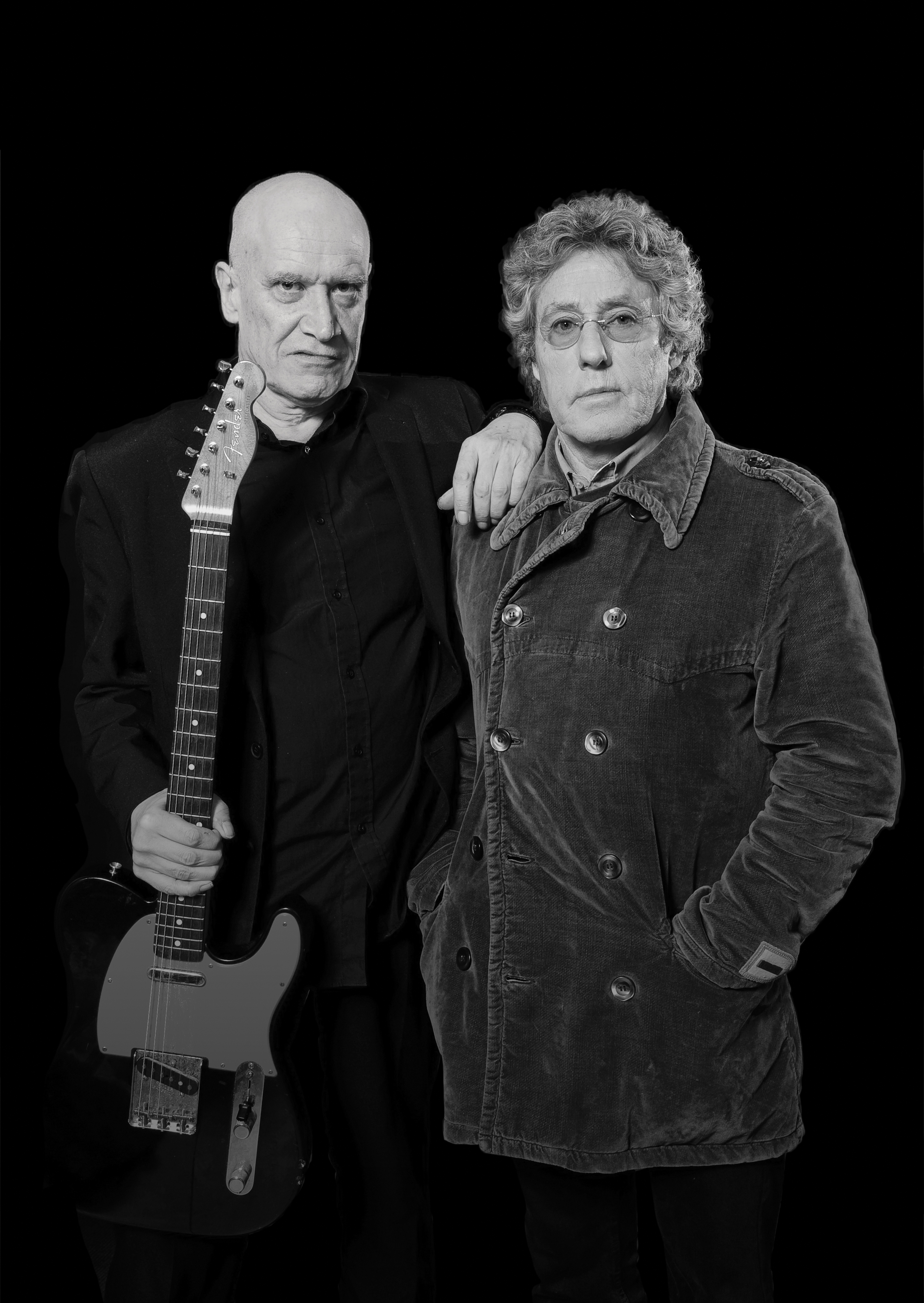
(Wilko with Roger Daltrey)
BBR - During your career, you have collaborated with many famous music artists, together with touring and recording with the Wilko Johnson Band. I personally feel that some of your records, especially Barbed Wire Blues and Red Hot Rocking Blues, they have been somehow undeservedly overlooked by the worldwide music press. Did you feel somehow vindicated, or that justice was made to your enormous talent, when that masterpiece called Going Back Home that you released with Roger Daltrey in 2014 reached the top spots in the charts of half the world?
WJ - That was absolutely crazy, because it happened in the time of my life when I was dying. We had discussed making an album long time ago with Roger but we never did. I thought that we could make an album together of like, some good 60's American Soul, something of that ink. Then, when Roger found out that I was dying, he called me up and said "Let's do that record", at which point I thought to make an album made of my songs, rather than going for the original plan. So we did and it was a great fun doing it. When the record then became such a success, it did make me feel really good because I could feel that the songs of the album were good ones.
BBR - Julian Temple, one of the most intelligent film directors of this generation and good friend of yours, once described you to the press, I guess in the nicest possible way, after he filmed that splendid movie that it is The Ecstasy Of Wilko Johnson as "an occasionally obstreperous, cantankerous, original, inspirational figure. He is like a medieval saint!". Do you remember what was your initial reaction when you saw the movie for the very first time after your post-operation recovery was over?
WJ - (Laughs) That was strange. Normally, I dislike watching myself on film or listening to my records because I feel like it embarrasses me somehow, I would never do such things. When the film was made, I had to go to the opening and it felt really weird, because in the first half of the film, I am dying and as the film goes on, then I am back to life. It really felt strange to be watching myself during that period when I was dying and looking at myself in that moment. It felt like looking at somebody else, rather than me. When I looked at the first part of the movie, I am thinking: "Man, there is this poor guy that he is going to die any minute" and was for me the weirdest feeling in the world because, as I watched it, it brought me straight back to that painful time. Julian makes such great films. I have no idea how he does it but he is so clever and I am very lucky to have somebody like him recording all that.
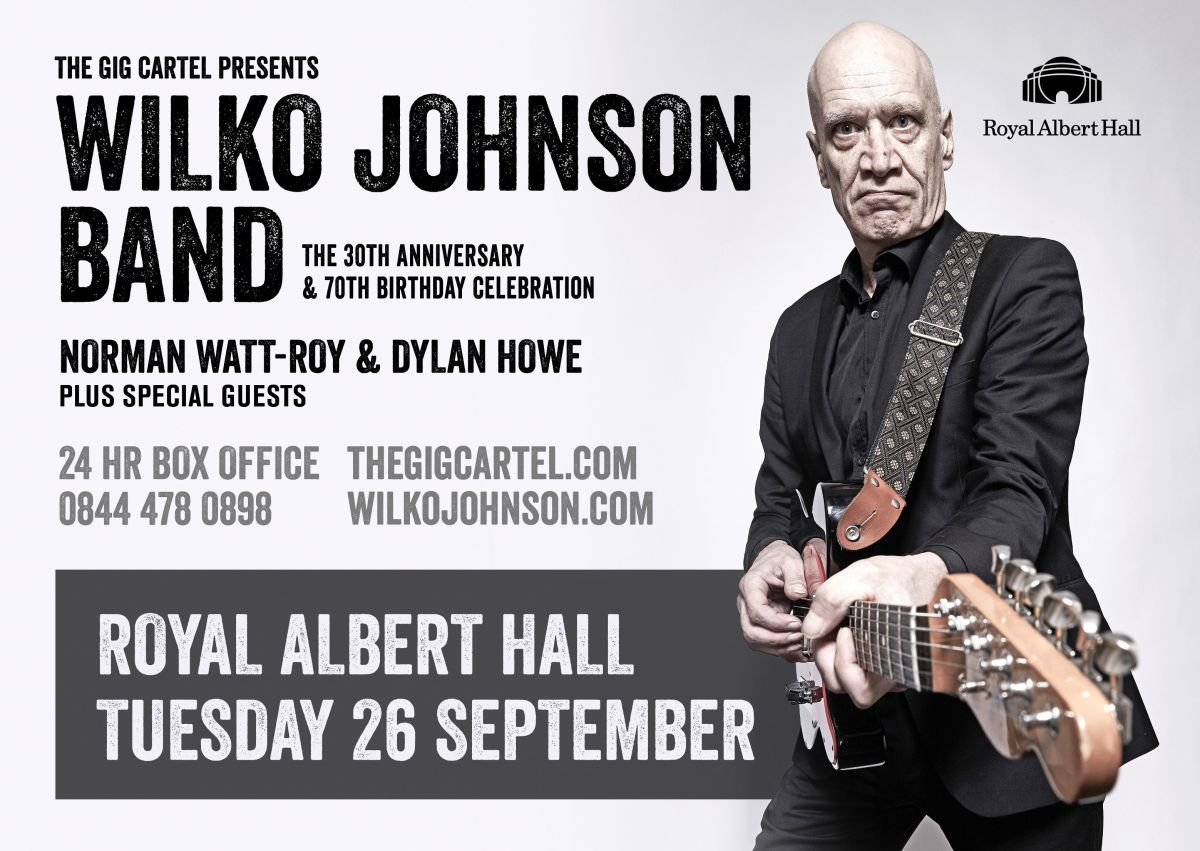
BBR - Wilko, what do you really want as the best present possible for your 70th birthday?
WJ - We have started working on a new album and I would absolutely love to have that finished and ready really soon. That would make a nice present for me!

